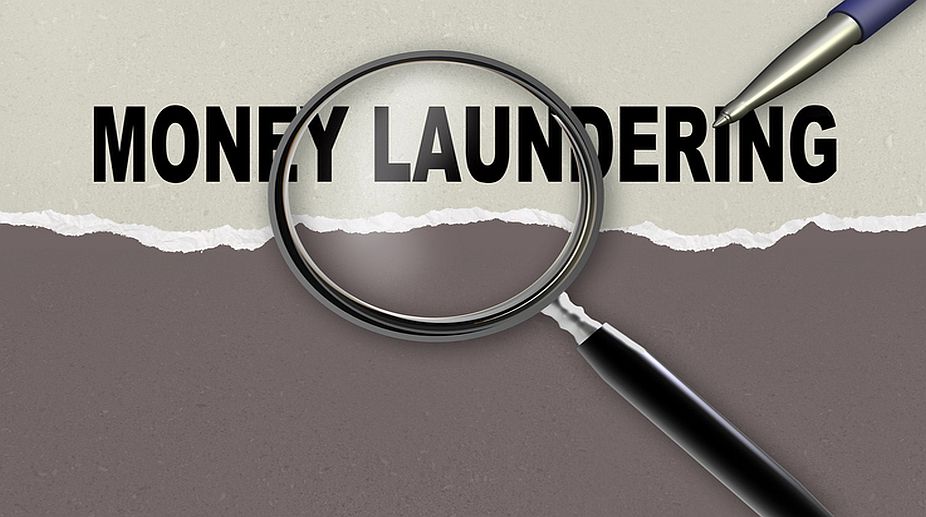Bangladeshi man in BSF net after visa issues
The BSF officials have come to know after they got Malaysian currency Ringgit from the possession of an apprehended Bangladeshi national
Nepal is at real risk of being put on the greylist by the Financial Action Task Force (FATF) as there are deficiencies in both its legislation and enforcement of laws related to money laundering and terror financing, writes Prithvi Man Shrestha in The Kathmandu Post.

(Representational Image: Getty Images)
Nepal is at real risk of being put on the greylist by the Financial Action Task Force (FATF) as there are deficiencies in both its legislation and enforcement of laws related to money laundering and terror financing, writes Prithvi Man Shrestha in The Kathmandu Post.
Nepal is struggling to address a number of deficiencies to comply with the standards of the Paris-based regulatory body related to anti-money laundering and terrorist financing and has identified at least 15 weak laws. The greylisting could be damaging to Nepal’s struggling economy which is heavily reliant on foreign aid, remittances and imports. A country on the greylist could potentially face problems such as a lack of trade opportunities, a downgrade of ratings, and a subsequent shrinking of the economy.
A delegation of the Asia Pacific Group on Money Laundering (APG), a FATF-style regional anti-money laundering body recently visited Nepal for two weeks to assess the country’s response to money laundering and terror financing, reported Shrestha.
Advertisement
Officials said that the APG would only include the progress made till December 16 in its mutual evaluation report, which puts Nepal in a vulnerable position again, and liable to being greylisted if not blacklisted.
‘Blacklist’ is a term used for the FATF’s list of “High-Risk Jurisdictions subject to a Call for Action.” Currently, North Korea, Iran, and Myanmar are on the blacklist.
The ‘greylist’ is used to denote a group of countries/jurisdictions with “strategic deficiencies” in their regime to counter money laundering and terror financing.
Once listed as ‘jurisdiction under increased monitoring’ by the FATF, they must develop an action plan within a specific period. A country on the greylist is not subject to sanctions. However, the greylist signals to the international banking system that there could be enhanced transactional risks from doing business with the said country, reported The Kathmandu Post.
However, Pakistan is an example of how greylisting hits an economy. Tabadlab Private Limited, a think tank, and advisory services firm in a report in 2021 said that the greylisting of Pakistan by the FATF spanning from 2008 to 2019, may have resulted in cumulative Gross Domestic Product (GDP) losses worth USD 38 billion, with the response driven by a reduction in consumption expenditures, exports, and foreign direct investment.
Nepal was on the greylist of the FATF from 2008-2014. After a series of progress made on the anti-money laundering regime that includes an amendment to the Anti-Money Laundering Act 2008, and the enactment of other laws, the FATF finally removed Nepal from the list in 2014.
“There is a real risk of being put on the greylist because we have deficiencies in both legislations and enforcement of the laws related to money laundering and terrorist financing,” said a senior official of Nepal Rastra Bank on the condition of anonymity.
Nepal has identified 15 laws that need to be amended to make them compatible with the FATF anti-money laundering standards, said Shrestha.
“We initiated the process of amending them but before the amendments could happen the tenure of the erstwhile House of Representatives expired,” said Dhan Raj Gyawali, secretary at the Prime Minister’s Office.
The government sought to amend those laws through some Nepal Acts Amendment processes. A majority of the 19 laws in the group are meant to address deficiencies in compliance with the FATF’s anti-money laundering and terrorist financing standards.
Some of the major laws that need amendment are Assets Laundering Prevention Act-2008, Land Revenue Act-1978, Tourism Act-1978, Securities Act-2007, Human Trafficking and Transportation (Control) Act-2008, Confiscation of Criminal Proceeds Act-2014, Mutual Legal Assistance Act-2014, Organized Crimes Prevention Act-2014, Criminal (Code) Act-2017 and Cooperative Act-2017, reported The Kathmandu Post.
The proposed amendments made these laws more strict against money laundering and terrorist financing. But the bill remained stuck in the House of Representatives.
The government sent an ordinance incorporating such amendments to President Bidya Devi Bhandari for authentication in early November. But the President sat on the ordinance, which later lapsed with the election of a new House of Representatives.
“Had the ordinance been authenticated by December 16 before the APG team completed their field visit, Nepal would probably not have been greylisted,” said the NRB official.
“The APG team will only include progress made till that date in its report, which may be damaging,” added the official.
In February, the APG is expected to produce its preliminary report on which Nepal will give its opinion. A face-to-face interaction is expected in April before the APG prepares its final report, according to Gyawali.
The report will then go to the APG plenary, which will determine whether Nepal will be under the International Cooperation Review Group (ICRG) monitoring of the FATF.
According to the International Monetary Fund, the consequences of greylist are a possible future blacklisting and loss of correspondent banking with many of the world’s major banks.
Advertisement